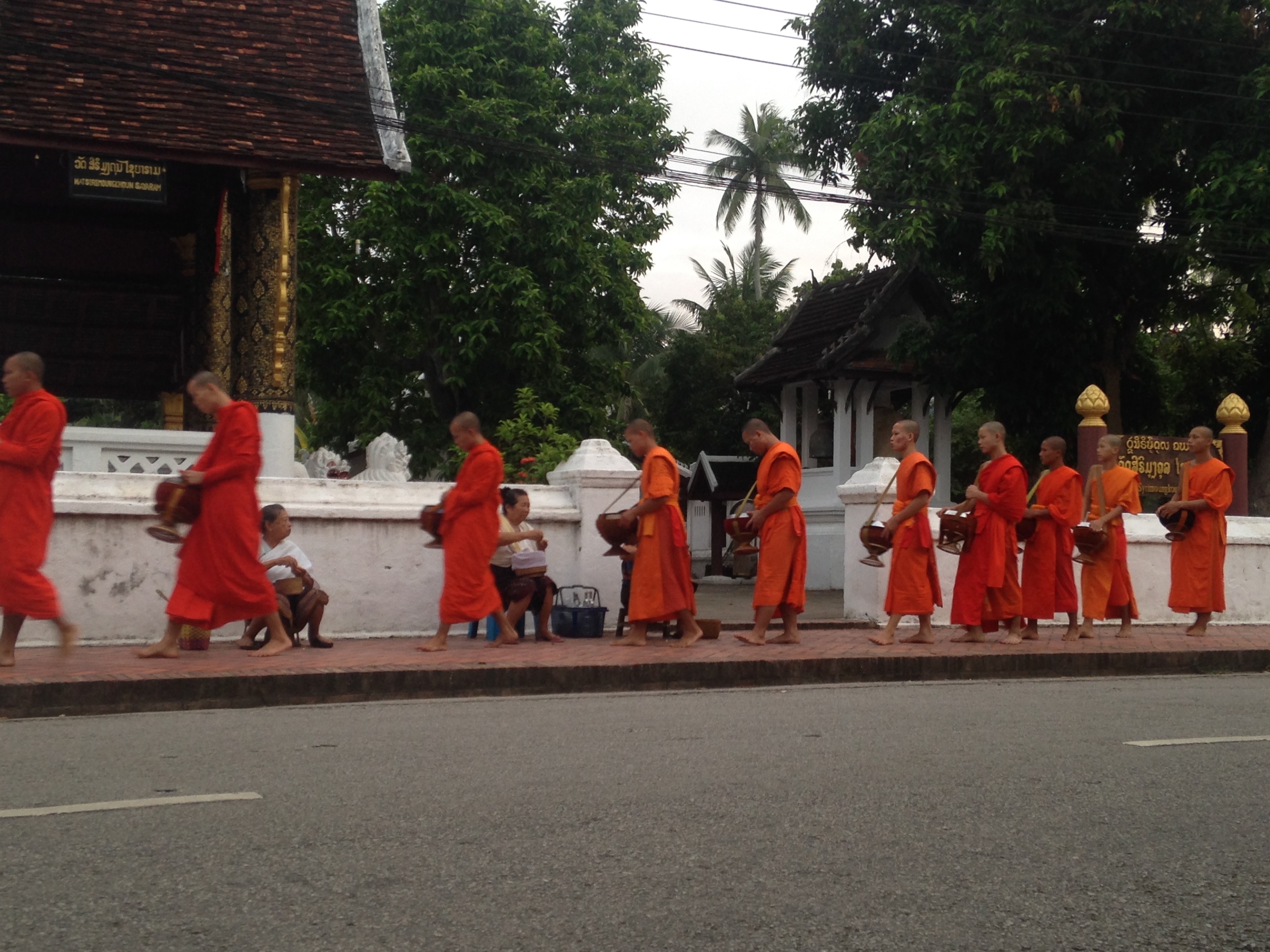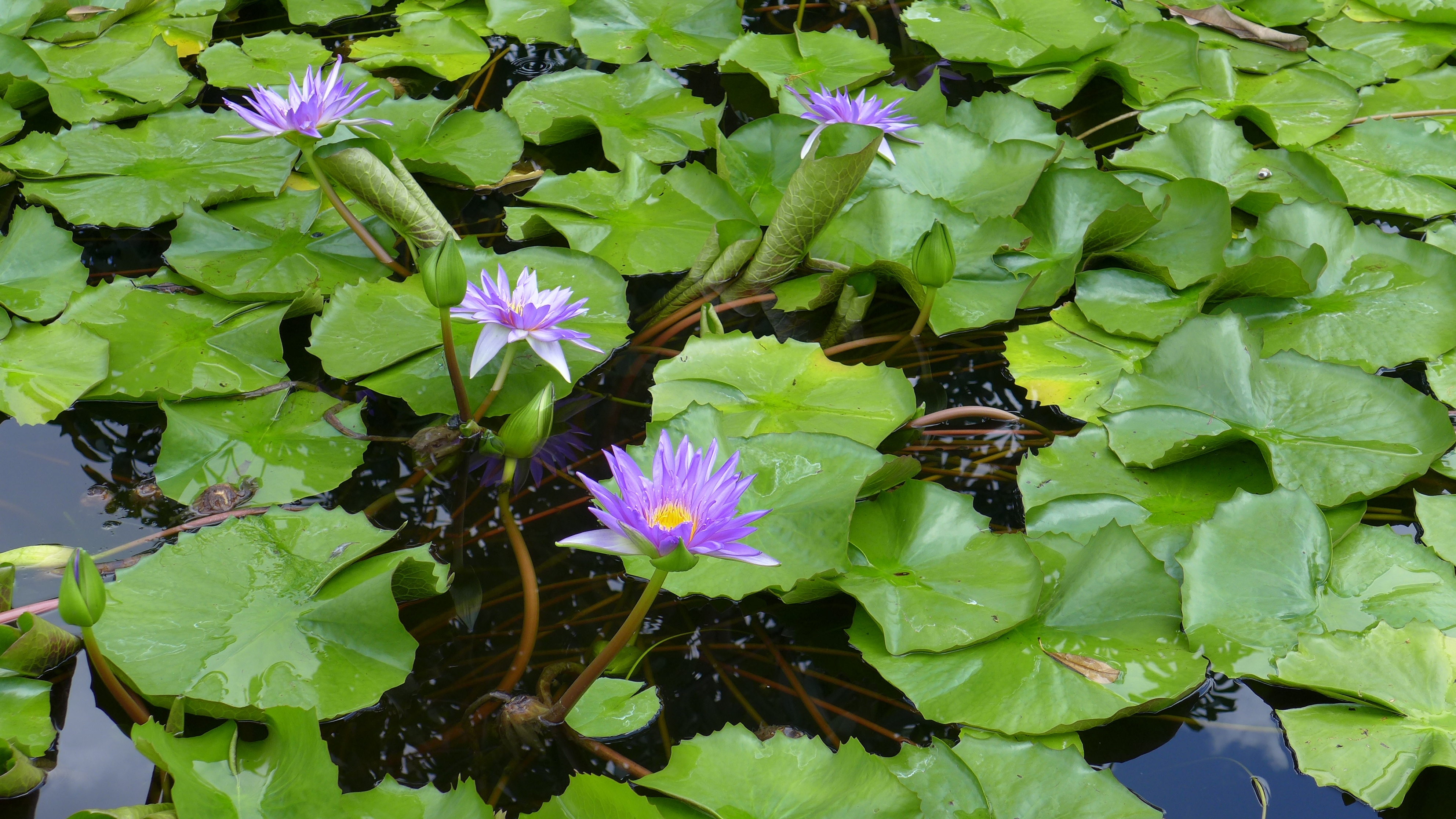I am sitting on an airplane on the way to Bali while attempting to write this article. There is occasional turbulence bouncing the plane. I hate turbulence. It makes my blood pressure rise, my tummy jump, and stories of our certain doom run through my mind painting vivid pictures I wish were not there. I close my eyes and put my attention on the sensation of my breath as it goes in and out of my nose. For the next few minutes I try to let go of the scary pictures, let go of the doomsday thoughts and try to keep focused on my breath. My mind interrupts frequently; it incessantly tells me, “I hate this. I hate turbulence. If the plane were not bouncing like this I would not be feeling this way”. Jacob gets my attention to check if I am ok but for some reason this annoys me and in a harsh whisper, I give him some snappy, dismissive comment. Then a memory pops in my mind and I think, “What would KK say?”
KK is an exuberant Buddhist Monk and one of the meditation instructors at the two-day meditation retreat that I attended while visiting Chiang Mai, Thailand. It was a silent retreat, which means that no one spoke for the entire two days. Though, I admit, I did giggle and speak with my roommate in the evening before going to bed and I am glad I did because I made a new friend from Australia. However, for the most part, I spent two days in silence learning the basic teachings of Buddhism and skills for meditation. A week later, I took Jacob, the girls and Todd and Sherry (Jacob’s Aunt and Uncle) back to the Buddhist University that sponsored my retreat. Many of the temples around Chiang Mai provide something called a “Monk Chat” to foreigners, a sort of meditation and Buddhism Q & A. Prior to Todd and Sherry joining us in Chiang Mai, we had all agreed we wanted to experience one of these Monk Chats. Because I loved my retreat so much, we decided it needed to be the one at the university temple named Wat Suan Dok. KK happened to be the chosen teacher for our chat. Later, we processed the experience at dinner (while a woman sitting at the adjacent table entertained us by producing several loud farts) and this question was born: “what would KK say?”
So what would KK say about my relationship with airplane turbulence? He would tell me that it is not the turbulence that is causing my suffering (or the woman farting) it is my thoughts and emotions causing my suffering. I am the one with the thought “I hate turbulence”. It is this thought that causes my body to go on high alert and flood with the fight/flight hormones that induce the feeling of anxiety and panic. This, in turn, allows more and more intense stories to have power in my mind and my anxieties continue to rise. AKA: suffering. The turbulence is just doing what turbulence does; I am doing the rest. KK would tell me that first and foremost I must practice or train my “monkey mind”. To do this I must sit in a meditation for just ten minutes twice per day, like the one I previously described. Then, when I am on an airplane freaking out about turbulence, I will have more awareness about my thoughts and emotions and improved ability to consciously choose my reaction (especially my reaction to Jacob). I will have an understanding that I am in control of what makes me suffer and with this mindful awareness, it is up to me to make the decision to let the monkey have his way and keep on suffering or calm down through conscious focus on my breath.
These concepts are not new to me. I have been using these skills for years in my psychotherapy practice under the name of “mindfulness”. What I have discovered over the years is that I, as well as many of my clients, spend a heck of a lot of time in pain about the past or in pain about the future. So much time is spent lamenting the past and worrying about the future that many of us lose our ability to experience life RIGHT NOW. I have learned that much of our stress comes from these worries and can cause depression, anxiety and panic. Instead of noticing the pain, we try to numb our suffering with substances, incessant web-surfing, shopping, you name it; whatever it takes to get away from the stories in our head, we will do it! What a gift it is to discover the calm of the present moment and use breath as the anchor to bring us back from the stories in our minds. My horrific scenes about plane crashes are an example of worrying about a future that is: a. unlikely to happen and b. I have no power over. Mindfulness and meditation practice helps me become aware of the rollercoaster of fears created by my untrained “monkey mind”.
Living in the present moment is what we have been doing for the past 10 months. Living right now, day to day. Well, at least that is the opportunity that this trip affords us and I will admit, I have not always been there moment to moment. Sometimes I have drifted to the past full of pain or longing and when I finally came to, I realized I had missed the experience right in front of me. During our travels in Thailand I spent several days feeling irritable and snappy until I finally stopped and listened to my thoughts and realized that they were full of worries about the future and causing a bummer of a rainstorm on my parade. The end of our journey is nearing as well as the deadline for our “reentry” plan. My anxious thoughts were saying, “What are we going to do? We sold our house? What were we thinking? We have nowhere to land. What about jobs? What about schools? Will we be able to create a life that is still filled with travel and exploration?”
The timing for my meditation retreat couldn’t have been better. Not only was I reminded that I already had the mindfulness skills to calm my anxiety but KK reminded me of one very important lesson taught by the Buddha:
Life is impermanence.
Everything changes moment to moment. My anxieties are reasonable. They are trying to move me forward to a solution, however; they do not need to cause me suffering and they are impermanent if I only just let them pass. That is not to say that I shouldn’t be working on a reentry plan. No, it is more that the worry is actually blocking me from thinking clearly and rationally about our choices. Our moms would tell you that we most definitely have a place to land should we need one and our education tells that that we will most definitely have jobs; it just might take a little digging to find the right one.
Suffering comes in many different packages from unresolved wounds, work and parenting stress, to worries about the future. It makes us less effective and sometimes say and do things we regret. Buddhism and meditation is not a religion per se, although many would argue with that notion but according to KK it is more of a philosophy of life. It is a way to decrease our psychological pain by understanding that we are each responsible for our own actions and reactions and any suffering that comes from those is ours. KK watered down the Buddha’s teaching by simply saying:
Do Good
Don’t Do Bad
Purify the Mind
Have a goal to practice Right Action, Right Thought, Right Speech and dedication to daily training of your monkey mind and you are on the path toward happiness and a life free from suffering. Most importantly, remember to have compassion for yourself and others as well as forgiveness of yourself and others. Sometimes the latter is the most difficult to achieve but I ask you, if you are holding a judgement or grudge against someone is that their suffering or yours? What would KK say?
We are all Monkeys
We are all Enlightened Ones
We all have suffering
We all have pain
We are all Monkeys
We are all Enlightened Ones
We all have love
We all have joy, compassion and anger
We all have the capacity for hate
We are all Monkeys
We are all Enlightened Ones
Who do I let drive the car?
~Amy D.
**the featured image is of the monks in Luang Prabang, Laos as they walk in the early morning hours for Alms collection or donations of food by the local people (there are hundreds of them walking it is really an amazing sight and so peaceful to watch). The locals who participate in this practice do not eat or drink their own breakfast before first giving food to the monks. The Buddha started this practice with the intention to remind the community to Give before you Get.**


